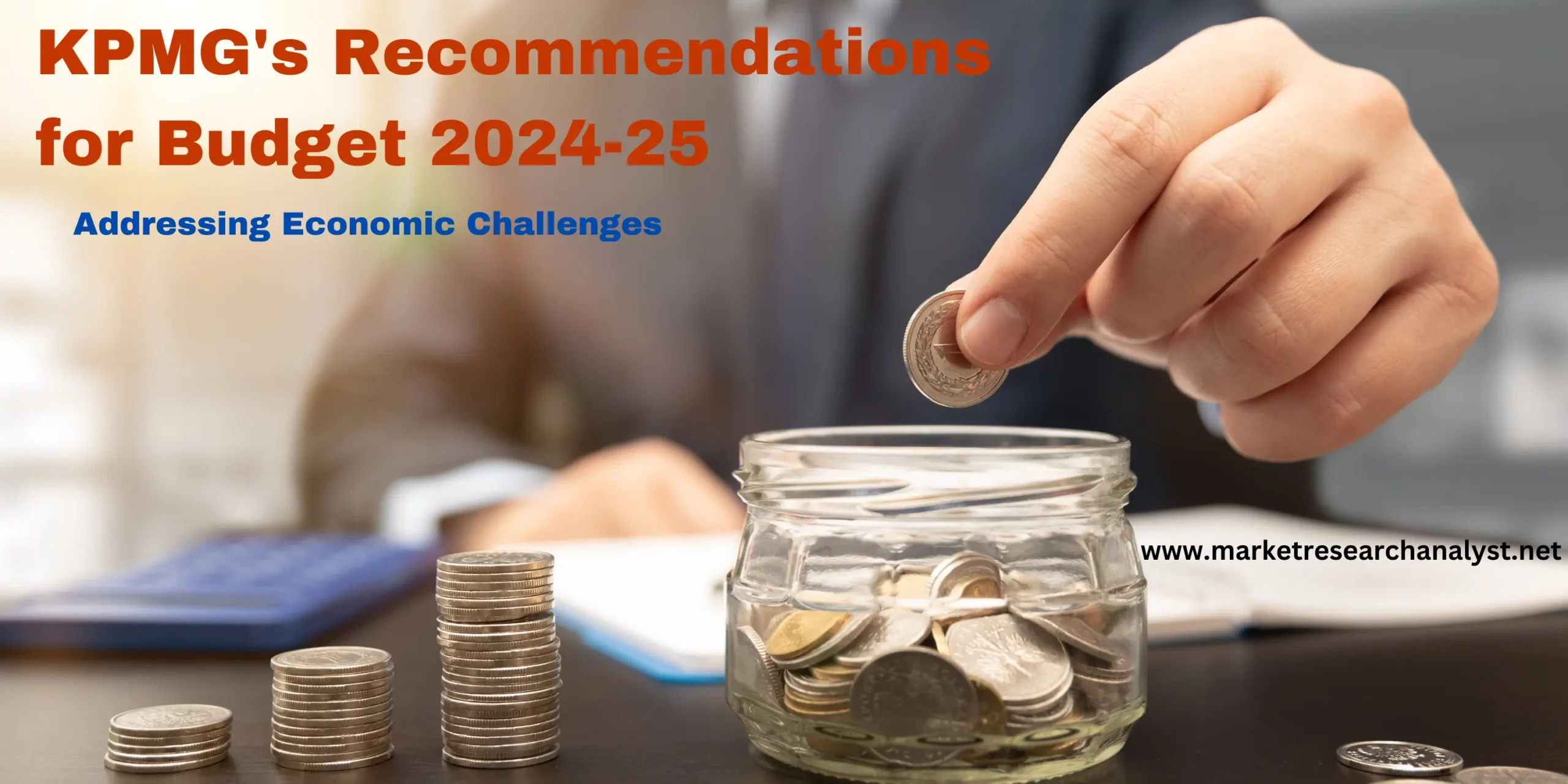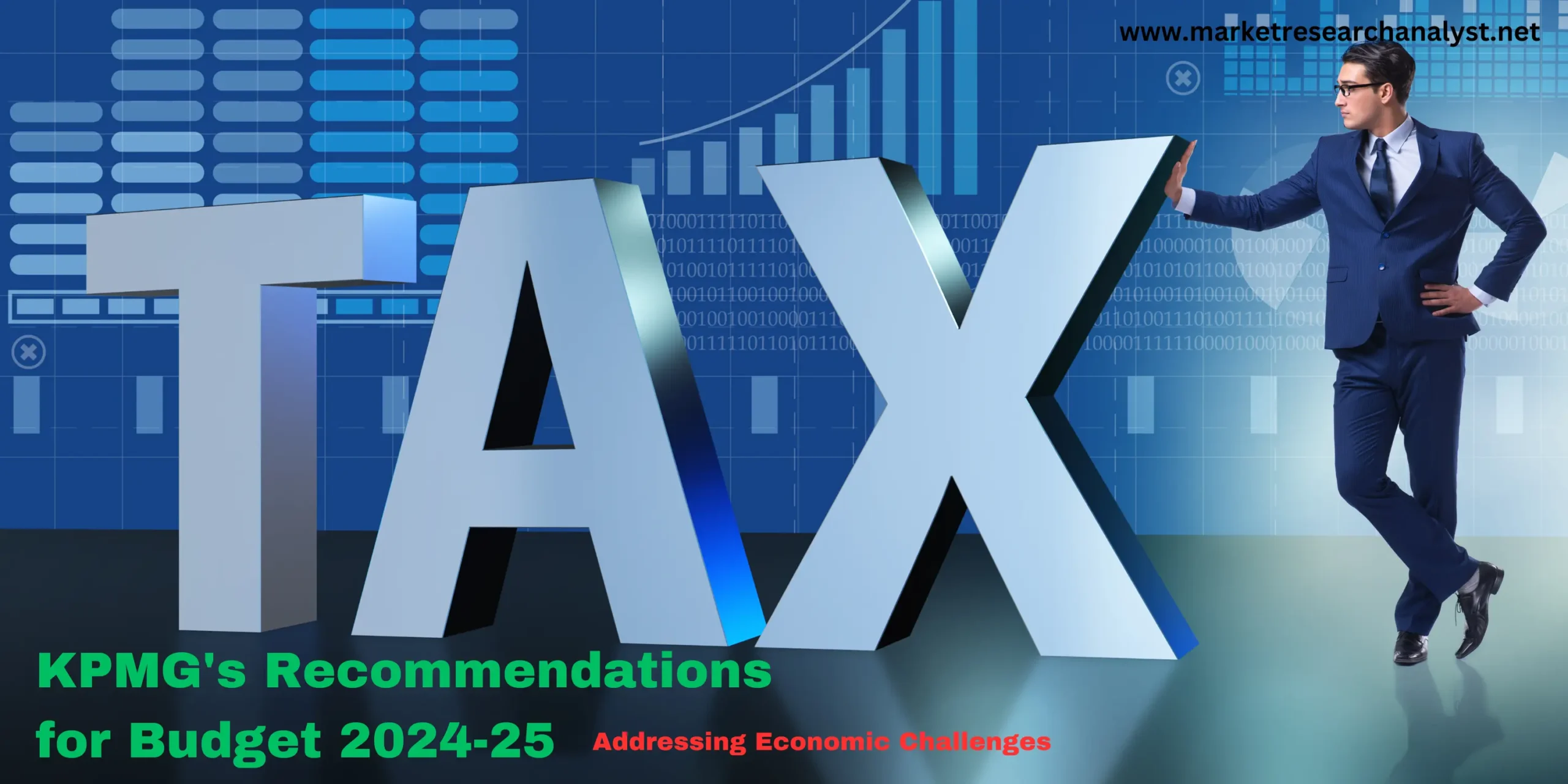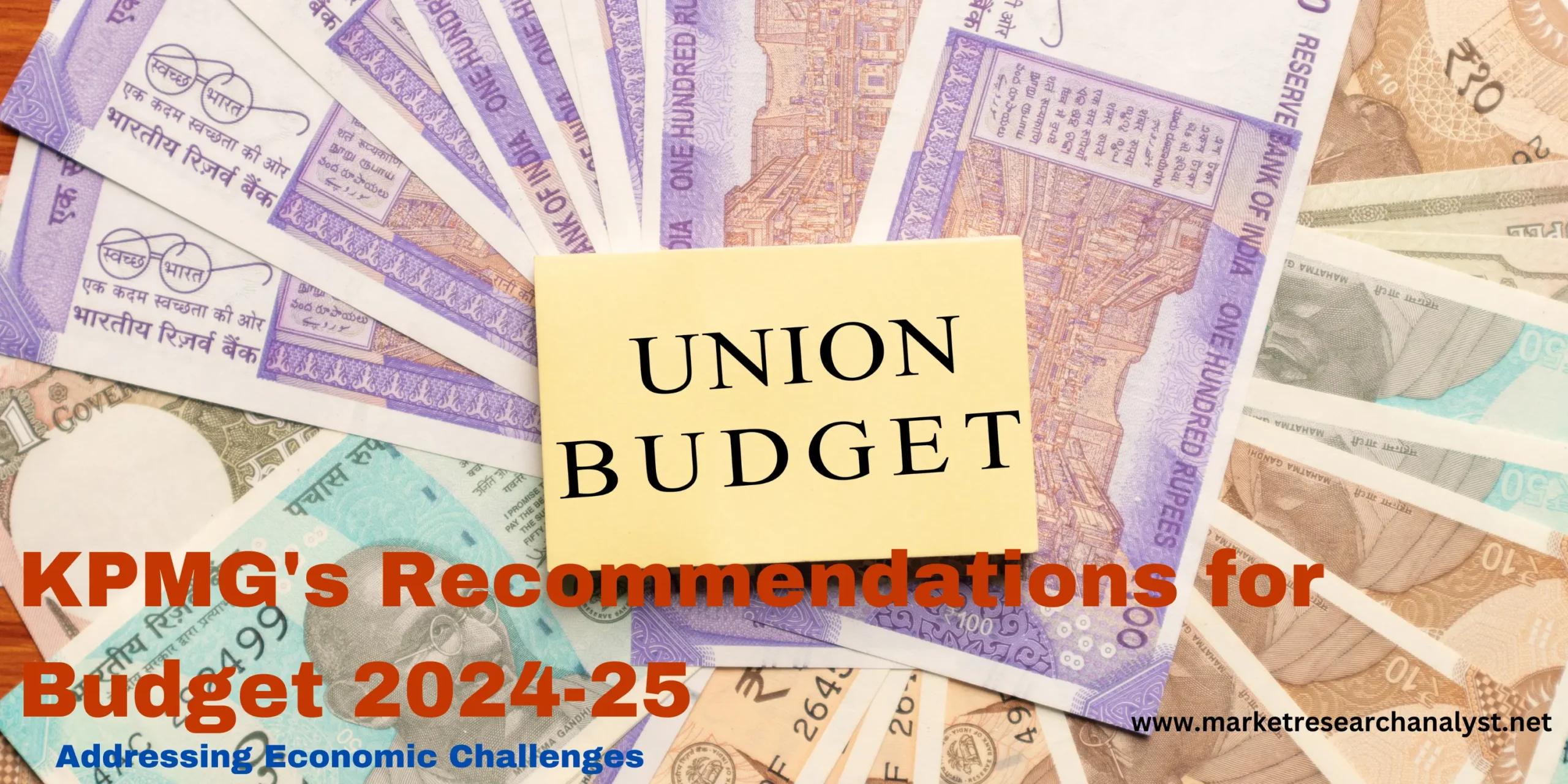Discover KPMG recommendations for Budget 2024-25, including proposals to double the standard deduction, increase tax breaks on housing loans, rationalize capital gains taxes, and align customs policies for economic growth in India.

As India prepares for Budget 2024-25, KPMG has outlined strategic recommendations aimed at addressing the country’s economic challenges. In response to mounting expenses and inflationary pressures, KPMG proposes doubling the standard deduction to Rs 1 lakh to alleviate taxpayer burdens. The consultancy also suggests increasing the basic tax exemption limit under the default new tax regime from Rs 3 lakh to Rs 5 lakh, aiming to enhance disposable income and stimulate economic activity.
Moreover, KPMG advocates for adjustments in tax policies related to housing loans to support the beleaguered real estate sector amidst recent regulatory changes and interest rate hikes. The firm also highlights the need for rationalizing the capital gains tax regime to simplify complexities and encourage investment across different asset classes.
Additionally, KPMG anticipates continued focus on aligning customs policies with industrial objectives to promote deeper value addition in India’s manufacturing sector. These recommendations are pivotal in shaping a budget that aims to bolster economic resilience and foster sustainable growth in the coming fiscal year.
Doubling of Standard Deduction to Rs 1 Lakh:

KPMG advocates for doubling the standard deduction from the current Rs 50,000 to Rs 1 lakh. This proposal stems from the significant increase in medical expenses, fuel costs, and overall inflation, which have escalated personal expenditure burdens. By enhancing the standard deduction, KPMG aims to provide taxpayers with relief and increase disposable income that can be directed towards consumer spending or savings.
Increase in Basic Tax Exemption Limit:
In line with the objective of enhancing disposable income, KPMG suggests raising the basic tax exemption limit under the default new tax regime. The proposal calls for an increase from Rs 3 lakh to Rs 5 lakh. This adjustment is expected to benefit taxpayers by reducing their tax liabilities, thereby further supporting consumer spending and savings.
The real estate sector faces mounting pressures due to recent increases in interest rates and regulatory reforms. To alleviate these challenges and promote home ownership, KPMG recommends reconsidering deductions for interest on self-occupied housing loans under the new default tax regime. Alternatively, enhancing the deduction in the old tax regime to at least Rs 3 lakh could provide necessary relief to homeowners.

Rationalisation of Capital Gains Tax Regime:
KPMG highlights the complexities within India’s current capital gains tax structure, which features differential rates for various asset types and varying holding periods to qualify for long-term gains. The firm proposes streamlining this structure to establish uniformity in both holding periods (e.g., 12 months for listed equity, 24 months for real estate, and 36 months for debt instruments) and tax rates. Simplifying these regulations could potentially stimulate investment and economic activity across different asset classes.
Customs Policy Alignment:
From a customs standpoint, KPMG anticipates a continued focus from the government on aligning tariff rate adjustments with industrial policy objectives. This strategic alignment aims to encourage deeper value addition within India’s manufacturing sector. Furthermore, KPMG expects ongoing coordination between changes in Customs tariff rates and the rollout of technical barriers to trade. This approach is crucial for maintaining a conducive business environment and fostering sustainable economic growth.

Conclusion
In conclusion, KPMG’s recommendations for Budget 2024-25 underscore the importance of adapting tax policies and customs regulations to address current economic challenges effectively. By enhancing deductions, simplifying tax structures, and aligning customs policies with industrial goals, the government can foster economic resilience and support sustainable growth in the coming fiscal year.
FAQs
- Why is KPMG’s proposing to double the standard deduction to Rs 1 lakh?
KPMG suggests doubling the standard deduction from Rs 50,000 to Rs 1 lakh due to significant increases in medical expenses, fuel costs, and overall inflation. This adjustment aims to alleviate the financial burden on taxpayers and enhance their disposable income.
- How does KPMG’s propose to increase the basic tax exemption limit?
KPMG recommends raising the basic tax exemption limit under the default new tax regime from Rs 3 lakh to Rs 5 lakh. This change is intended to reduce tax liabilities for individuals, thereby promoting higher consumer spending and savings.
- What are KPMG’s suggestions regarding tax breaks on interest paid on housing loans?
To support the real estate sector amidst rising interest rates and regulatory reforms, KPMG proposes allowing deductions for interest on self-occupied housing loans under the new default tax regime. Alternatively, it suggests enhancing deductions under the old tax regime to at least Rs 3 lakh to aid homeowners.
- How does KPMG propose to rationalize the capital gains tax regime?
KPMG highlights the complexities of the current capital gains tax structure, which includes differential rates and varying holding periods for different asset types. The firm recommends streamlining this structure to create uniformity in holding periods and tax rates, which could stimulate investment across various asset classes.
- What does KPMG expect from the government regarding customs policy in Budget 2024-25?
From a customs standpoint, KPMG anticipates the government’s focus on aligning tariff rate adjustments with industrial policy objectives. This alignment aims to encourage deeper value addition within India’s manufacturing sector. Additionally, KPMG expects continued coordination between changes in Customs tariff rates and the rollout of technical barriers to trade to maintain a conducive business environment.
- How will KPMG’s proposals benefit taxpayers and the economy?
KPMG’s proposals aim to provide taxpayers with financial relief through increased deductions and higher exemption limits, thereby enhancing disposable income. These measures are expected to stimulate consumer spending, encourage investment, and foster sustainable economic growth in the upcoming fiscal year.
- Are KPMG’s recommendations likely to be implemented in Budget 2024-25?
While KPMG’s recommendations reflect industry expectations and economic realities, the actual implementation depends on government policies and budgetary considerations. The final decisions will be announced during the Budget presentation on July 23 in Parliament.
These FAQs provide a concise overview of KPMG’s recommendations and expectations for Budget 2024-25, addressing key aspects of tax reforms, housing finance, capital gains, and customs policies.

